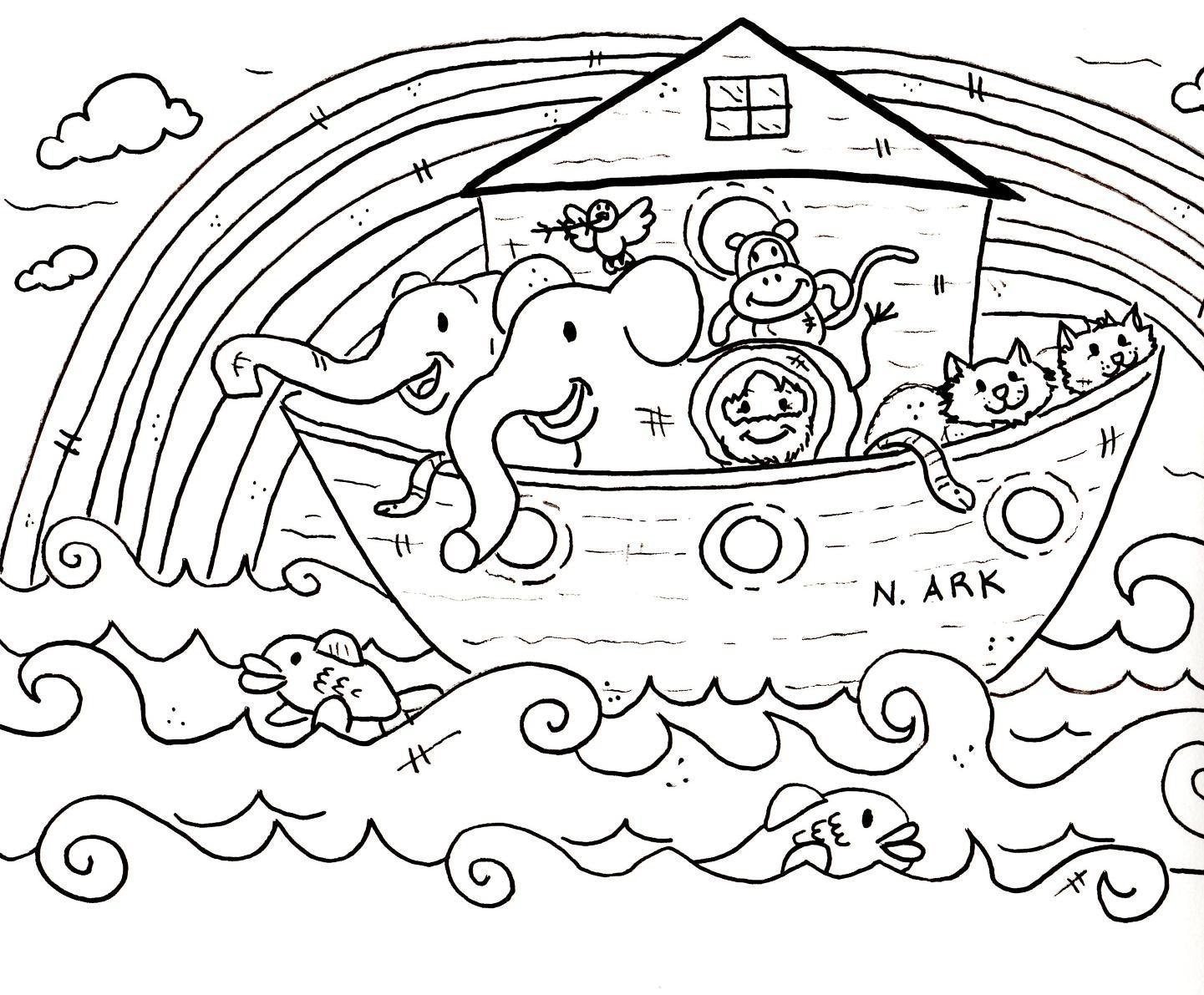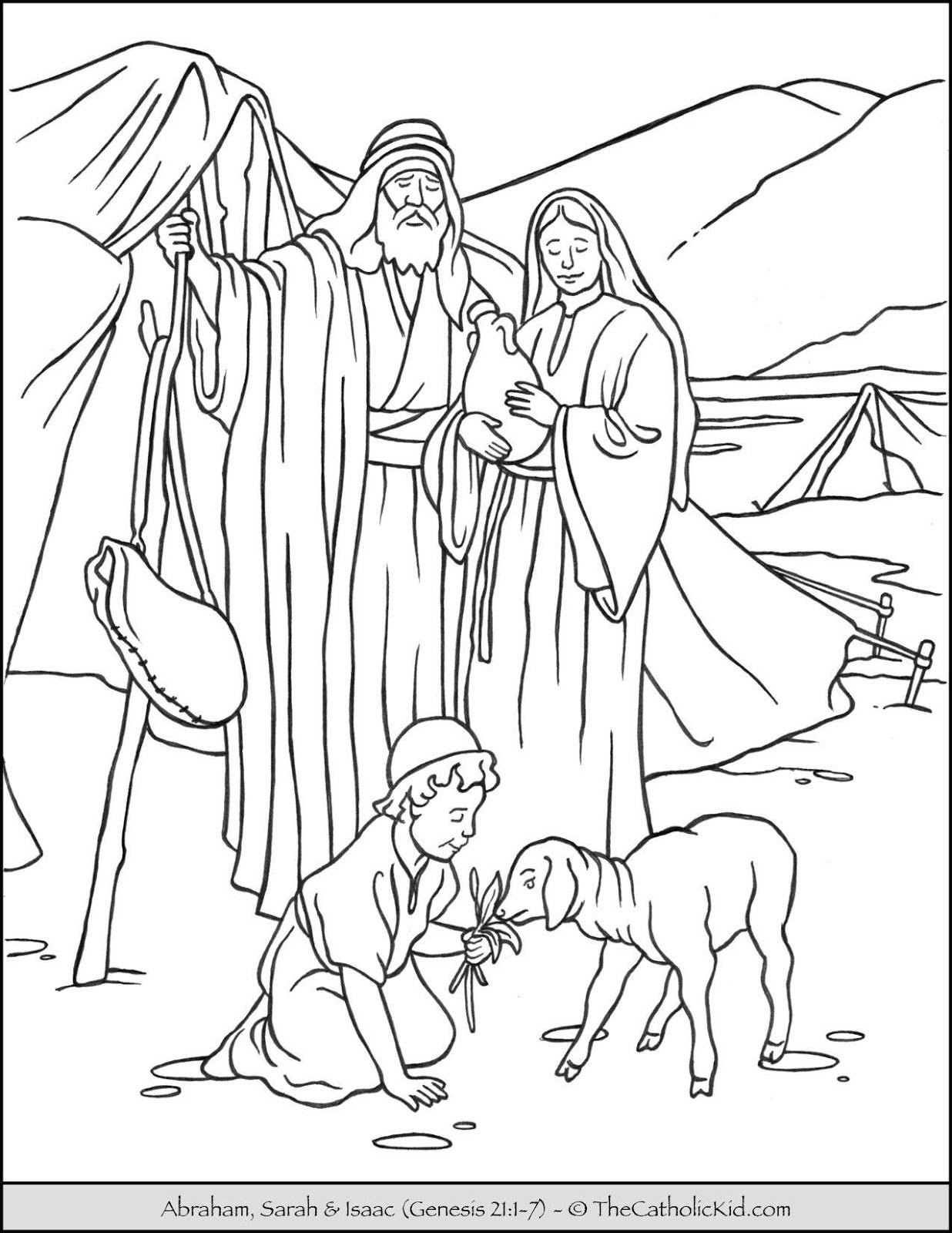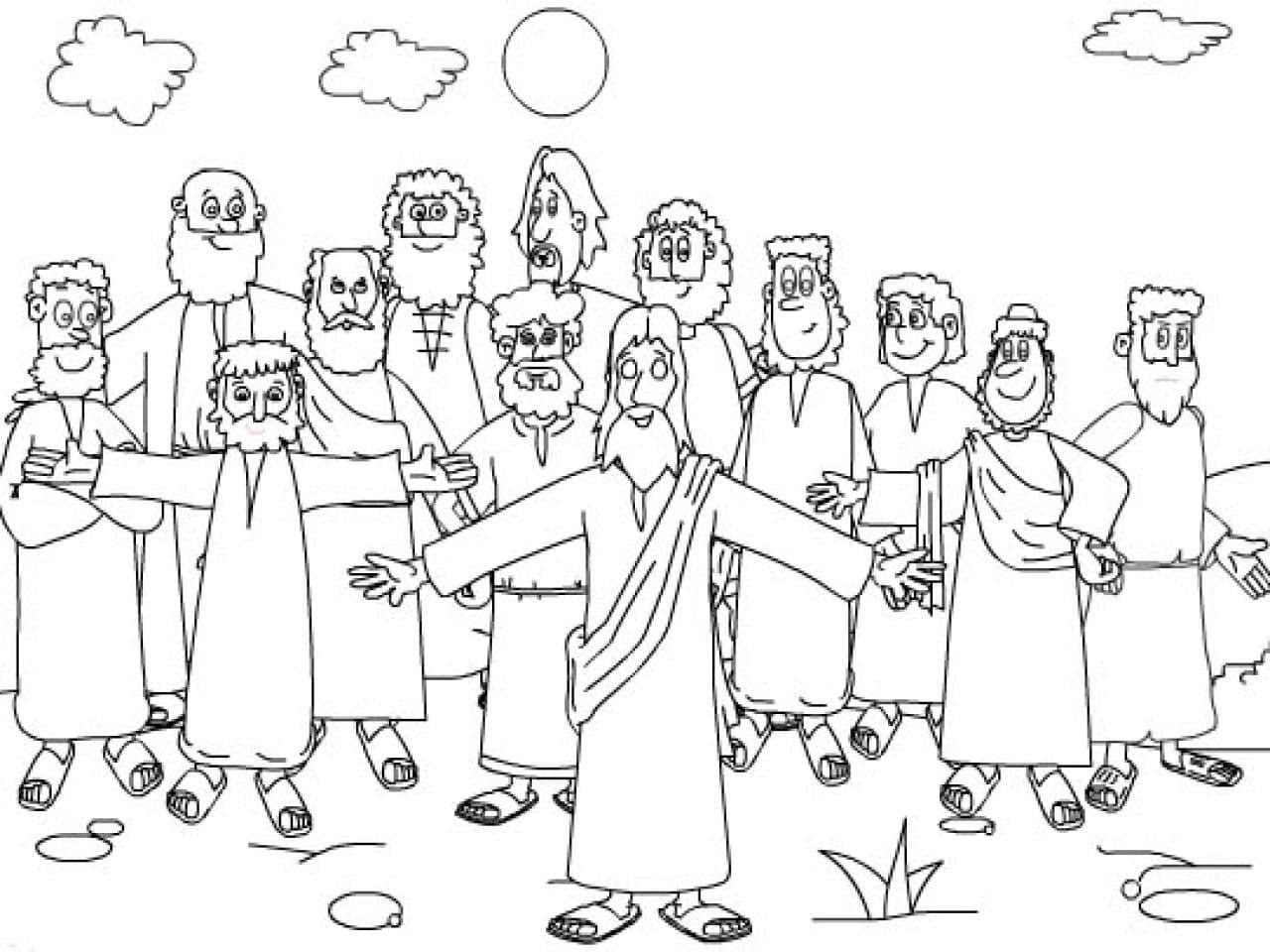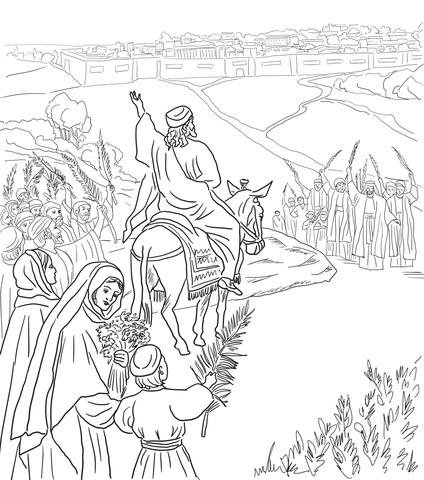Coloring Sheets Have Corrupted My Knowledge of Scripture and I Don't Like It
Sometimes pictures are not worth 1000 words. So many times as an adult, I have to ask, “Is this from the Bible, or do I just think it’s in the Bible?” I blame coloring sheets—many, many Bible coloring sheets. They’ve kind of corrupted my knowledge of scripture, and I don’t like it.
Take a look at exhibit one, Adam and Eve. This is the iconic image of them in the Garden of Eden; the strategically placed shrubbery, Eve’s long hair, and cute animals are all lovely touches. I don’t remember seeing the coloring sheets of Adam blaming Eve for eating the fruit, or the forthcoming labor pains. It still bugs me that the image of an apple somehow completely replaced the word “fruit” in scripture.
Let’s move on to exhibit two, Noah and the ark. As a former children’s minister, I will admit to glossing over some parts of this story. I still believe this was the right decision since I didn’t want to terrify three-year-olds about God drowning people. But come on, you know that boat of smelly animals had to have more going on than smiling elephants and monkeys.
Shall we move on to exhibit three? Abraham and Sarah’s story is well known: Hagar, Ishmael, Isaac, the moving around, the late-in-life pregnancy, and multiple other adventures. As much as I’ve read, studied, and taught the book of Genesis, I just noticed the other day that, after Sarah died, Abraham married Keturah and they had six sons. How did I miss that coloring sheet? Pretty sure it doesn’t exist, and I’m incredibly curious about these seven people.
For exhibit four, we have Jesus and the twelve. Am I the only one who has treated all the apostles like the same guy, just with a different colored robe? I blame the coloring sheets. When I’m digging into scripture, I read all kinds of details about these men, yet what sticks in my mind is that coloring sheet. Another thing that really bugs me is that because we usually only see Jesus with the twelve, we somehow think they were the only ones traveling with Jesus. Shocker: I blame the coloring sheets. We don’t see the other disciples—many of whom were women, by the way—who traveled with Jesus and supported his ministry, financially and/or otherwise.
Am I making a big deal out of nothing? Maybe. I do think it’s worth kicking up a medium-sized fuss over it, though. Scripture is clearly not G-rated. Ideas, events, and details must be simplified because we want our children to know the love of God. I understand and support this use of coloring sheets. As adults though, do we let the coloring pages limit scripture in our memories? Scripture is complex, and yet it’s not hard to understand the most important messages from God. To me, that’s a beautiful mystery. Someone can ponder the depths of God’s identity through scripture for decades; and, at the same time, we can learn the critical basics of Jesus’ birth, life, and resurrection quite easily.
Clearly, the coloring sheets aren’t actually the problem, but oversimplification is a problem if it keeps us from remembering the nuances of God’s identity, the details, and the importance of the events recorded in scripture.
Why else does this matter? We oversimplify with each other in our relationships as well, and I witness first-hand the damage that does every day.
As I’m working with people in conflict, the coloring sheet phenomenon wreaks havoc. It’s like people create this oversimplified coloring sheet of the situation—or worse, the person. This sketch can demonize the other person, leave out critical information, and ignore the layers of emotion that created the conflict. It’s easier, to be sure; I can defend my own position if I’m only looking at the other person’s upsetting behaviors in this coloring sheet that I create. I can solidify this image in my head, repeat the story, and the complete truth is forgotten or never acknowledged in the first place. Injustice has been served in this all-too-common practice, and this smug immaturity loves blame, breaks relationships, and surely does not practice confession or forgiveness. I’d love to see a coloring sheet of smug immaturity; at least that would be an important detail that explains the lack of reconciliation.
If anyone gets why people do this, I do. I put this on the list of many embarrassing things that go along with being human. God is calling us to do better, though. I’ll say it until the day I die that we have to do better with conflict, and oversimplification makes it harder. If we can’t reconcile, what Jesus are we showing the world?
Dig in, my friends. Resist the urge to oversimplify the situation and examine all the information. Yes, someone’s bad behavior is hurtful. However, we must be honest about our own contribution, investigate the critical information that led up to the conflict, and be persistent in reconciliation.
I’ll leave you with one more exhibit: Jesus’ triumphant entry into Jerusalem. In Luke 19, starting in verse 37, we read, “When he came near the place where the road goes down the Mount of Olives, the whole crowd of disciples began joyfully to praise God in loud voices for all the miracles they had seen: [38] ‘Blessed is the king who comes in the name of the Lord!’ ‘Peace in heaven and glory in the highest!’”
But that’s not the whole picture. The text continues: “[39] Some of the Pharisees in the crowd said to Jesus, ‘Teacher, rebuke your disciples!’ [40] ’I tell you,’ he replied, ’if they keep quiet, the stones will cry out.’”
This next passage is the part I feel gets oversimplified by the coloring sheet.
[41] As he approached Jerusalem and saw the city, he wept over it [42] and said, “If you, even you, had only known on this day what would bring you peace—but now it is hidden from your eyes. [43] The days will come upon you when your enemies will build an embankment against you and encircle you and hem you in on every side. [44] They will dash you to the ground, you and the children within your walls. They will not leave one stone on another, because you did not recognize the time of God’s coming to you.
Jesus was incredibly sad here. He wept over the people of Jerusalem—his people. They wouldn’t look past their own oversimplified version of who they wanted the Messiah to be. They were satisfied with the coloring sheet version of a king, and those who plotted to crucify him were not concerned with testing their own understanding.
God help us all if we fall into the same trap—with Jesus or with each other.












